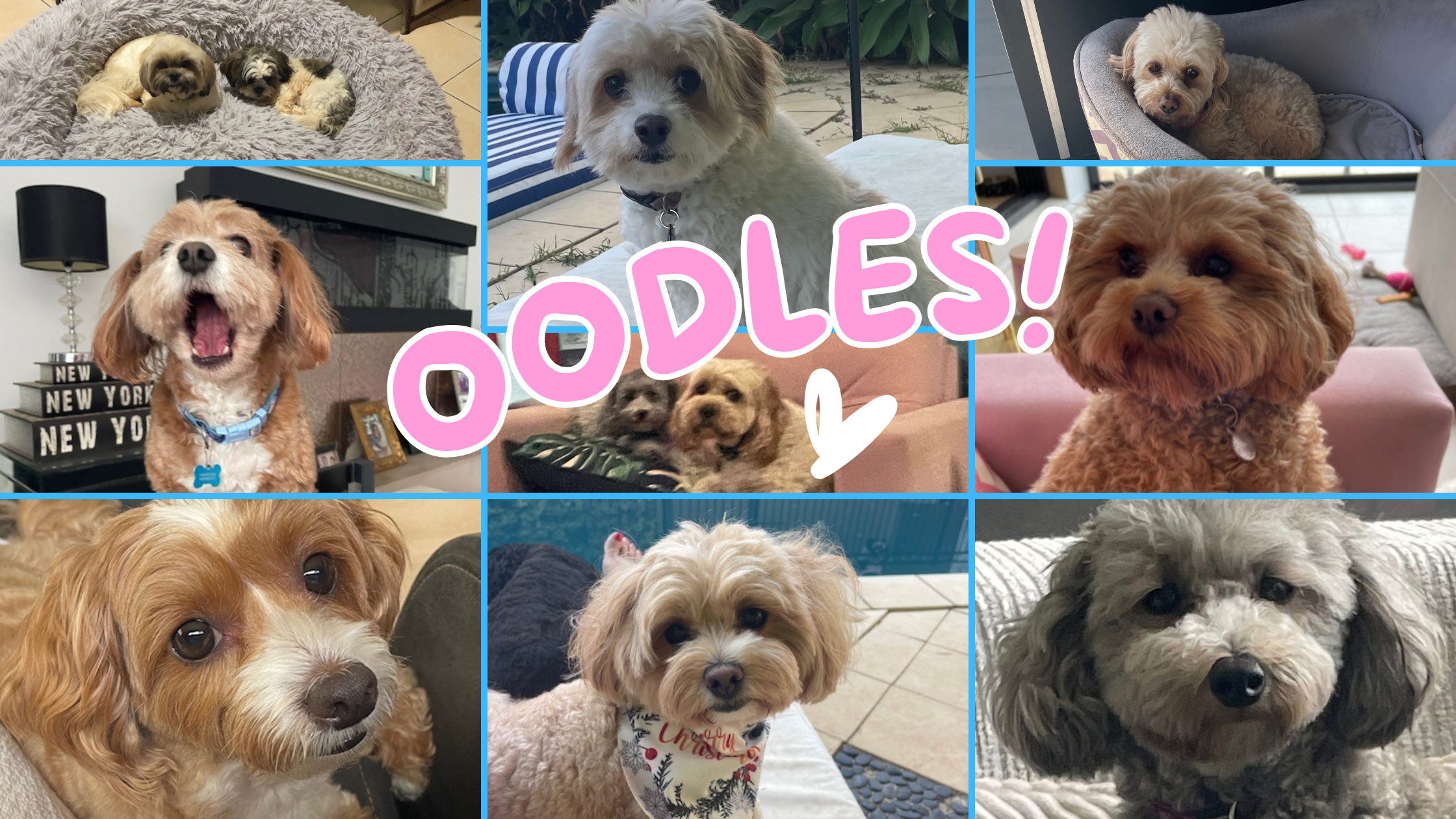
Why Oodles Are Different From Other Small Breeds: What Makes Them So Special?
If you’ve ever met a Cavoodle, Moodle, Spoodle or any other oodle, you’ll know there’s something a little extra special about these fluffy, fun-loving dogs. While they might fall into the category of “small breeds,” oodles are in a league of their own — and it’s not just because of those adorable teddy bear faces! And as dog sitters for oodles, we know just how cute and special they really are.
So what makes oodles so different from other small dogs like Chihuahuas, Pomeranians or Dachshunds? (and in our opinion better) Let’s dive into the unique world of oodles and find out.
- A designer dog with a Purpose
Most small dog breeds were originally bred for specific jobs — think ratting, guarding or companionship in royal courts. Oodles, on the other hand, are what we call designer breeds. They’re intentionally bred by crossing a Poodle with another breed (like a Cavalier King Charles Spaniel, Maltese or Cocker Spaniel) to create a dog that combines the best traits of both parents.
The primary goal? To produce a companion dog with a low-shedding, often hypoallergenic coat, combined with a gentle, sociable temperament. And it’s worked — oodles are famously friendly and fantastic family pets.
- That iconic fluffy, low-shed coat
One of the biggest drawcards for oodle owners is the coat. Thanks to their Poodle heritage, most oodles have a soft, curly or wavy coat that tends to shed far less than other small breeds. This makes them a popular choice for allergy sufferers or anyone wanting to avoid finding dog hair on every piece of clothing they own!That said — those gorgeous coats don’t come maintenance-free. Oodles require regular grooming to prevent matting and keep them looking their best. It’s a small price to pay for such an irresistibly huggable friend.
- High intelligence (and the energy to match)
Poodles are one of the smartest dog breeds out there, and oodles inherit that cleverness in spades. They’re quick learners, love problem-solving, and often pick up new tricks with ease.But with great intelligence comes great responsibility! Oodles need mental stimulation and regular exercise to stay happy. Without it, they can become bored and cheeky (read: a little mischievous). Other small breeds might be content to lounge on the couch, but oodles love interactive games, training sessions and playdates at the park.
- Velcro dogs: The ultimate companions
While many small dog breeds are known for being loyal, oodles take attachment to another level. They’re often nicknamed “velcro dogs” because they adore being close to their humans. Whether you’re cooking dinner, watching TV or working from home, your oodle will likely be right by your side (or on your lap).This intense affection makes them excellent family pets, therapy dogs and emotional support animals. It also means they can be prone to separation anxiety if left alone for long periods — another reason why oodle owners often seek out doggy daycare or regular social outings for their pups.
- Every oodle is unique
Since oodles are crossbreeds, no two are exactly alike — even within the same litter! You might get a Cavoodle with tight Poodle curls and a laid-back nature, or one with looser waves and boundless energy. That unpredictability adds to their charm, with each oodle bringing its own blend of personality, appearance and quirks. We know first hand and love there unique pawsonalities.
Oodles might be small in size, but they’re bursting with personality, intelligence and love. Their designer origins, hypoallergenic coats, and affectionate, clever nature set them apart from other small breeds. They thrive on companionship, need regular grooming and mental stimulation, and repay it all with endless cuddles, tail wags and loyal devotion.
If you’re lucky enough to share your life with an oodle — or thinking about welcoming one into your home — you’re in for a treat. They truly are a little different, and a lot special.